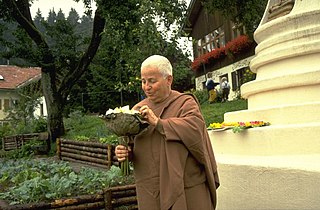A Quote by Letitia Elizabeth Landon
The truth is, we never make for others the allowance we make for ourselves; and we should deny even our own words, could we hear them spoken by another.
Related Quotes
Before you disagree make sure you understand. In other words, we must make sure that we can describe another's theological position as he would describe it before we criticize or condemn. Another guiding principle should be 'Do not impute to others beliefs you regard as logically entailed by their beliefs but that they explicitly deny'.
I do not know why it matters that I should tell the truth to myself at night, why it should matter that the truth should be spoken at least once in the world. Because the world is a place of silence, the sky at night when the birds have gone is a vast silent place. Words will make the slightest difference to the sky at night. They will not brighten it or make it less strange. And the day too has its own deep indifference to anything that is said.
Over and over victims are blamed for their assaults. And when we imply that victims bring on their own fates - whether to make ourselves feel more efficacious or to make the world seem just - we prevent ourselves from taking the necessary precautions to protect ourselves. Why take precautions? We deny the trauma could easily have happened to us. And we also hurt the people already traumatized. Victims are often already full of self-doubt, and we make recovery harder by laying inspectors blame on them.
What I want to argue for is not that we should give up on our ideas of success, but that we should make sure that they are our own. We should focus in on our ideas and make sure that we own them, that we're truly the authors of our own ambitions. Because it's bad enough not getting what you want, but it's even worse to have an idea of what it is you want and find out at the end of the journey that it isn't, in fact, what you wanted all along.
The misfortune of others is our misfortune. Our happiness is the happiness of others. To see ourselves in others and feel an inner oneness and sense of unity with them represents a fundamental revolution in the way we view and live our lives. Therefore, discriminating against another person is the same as discriminating against oneself. When we hurt another, we are hurting ourselves. And when we respect others, we respect and elevate our own lives as well.
However, community is first of all a quality of the heart. It grows from the spiritual knowledge that we are alive not for ourselves but for one another.
Community is the fruit of our capacity to make the interests of others more important than our own.
The question, therefore, is not 'How can we make community?' but, 'How can we develop and nurture giving hearts?'
It is difficult to see ourselves as we are. Sometimes we are fortunate enough to have good friends, lovers or others who will do us the good service of telling us the truth about ourselves. When we don't, we can so easily delude ourselves, lose a sense of truth about ourselves, and our conscience loses power and purpose. Mostly, we tell ourselves what we would like to hear. We lose our way.
Many of our feelings of satisfaction or dissatisfaction have their roots in how we compare ourselves to others. When we compare ourselves to those who have more, we feel bad. When we compare ourselves to those who have less, we feel grateful. Even though the truth is we have exactly the same life either way, our feelings about our life can vary tremendously based on who we compare ourselves with. Compare yourself with those examples that are meaningful but that make you feel comfortable with who you are and what you have.






































